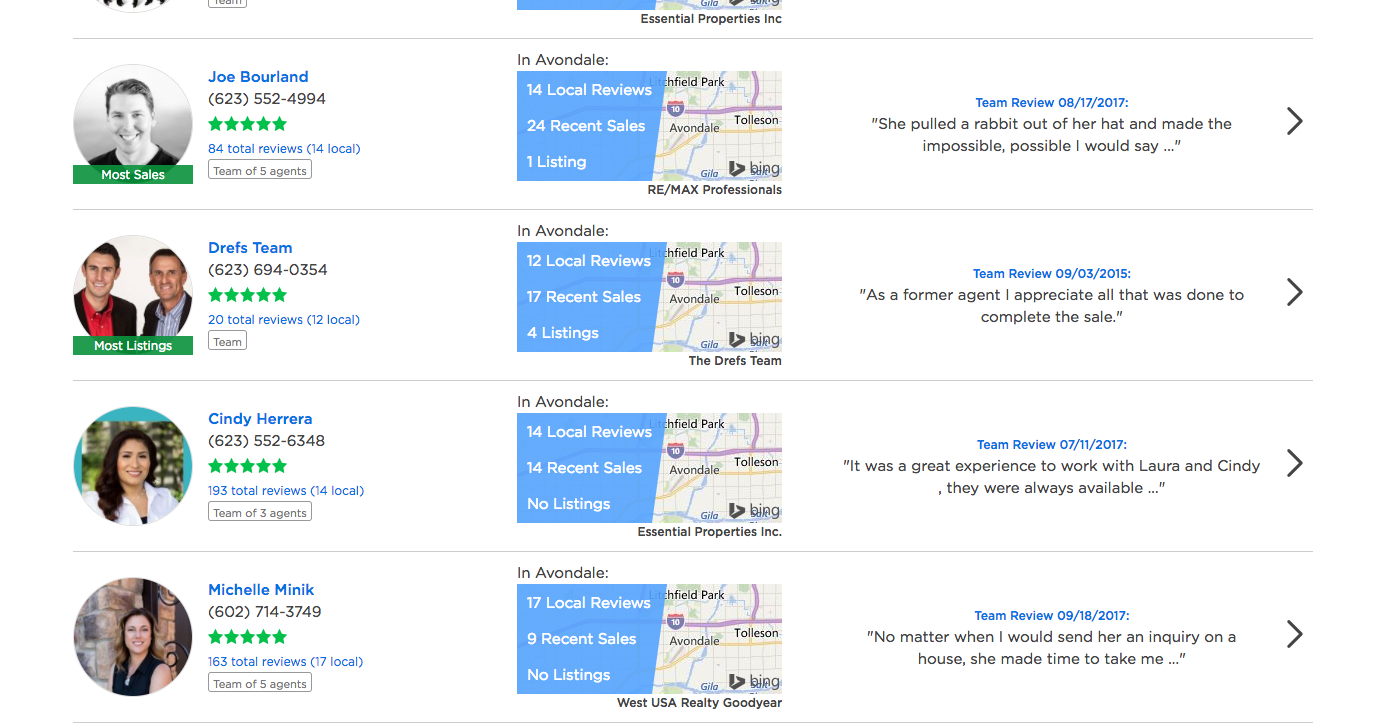Agents might not have a formal education in real estate marketing, but that’s no reason to accept sub-par results. If you’re losing money with online display ads, flyering, Facebook-boosted ads, and other forms of advertising, then it’s time to step back.
Like many brick-and-mortar businesses, agents often rely on a handful of marketing channels to promote their brand:
- Flyers
- Website
- Facebook posts
- Local publications
- Online business and classifieds listings sites (craigslist, Kijiji, etc.)
- Real estate listing portals (Zillow, Zoocasa, Trulia, etc.)
More advanced agents might have a blog, a newsletter, or even both to drive online interest. Lawn signage, billboards, and radio advertising are also quite common among the top performers.
But do these methods actually get results?
Real Estate Marketing Practices At A Glance
The facts about real estate marketing are surprising:
- website: 72% of agents claim to be unhappy with their website lead generation
- display ads: 73% of consumers prefer to learn about a brand through their online content rather than advertising
- social media (Facebook, Twitter, etc): only 9% of real estate agents market their listings on social media platforms
- real estate listings portals: They dominate search results because of their popularity with users, but agents are forced to compete over listings and visibility. Leads generated from listing portals convert poorly because there’s no relationship building.
- classifieds listings sites: Be prepared to re-post several times a day if you want to keep your listings visible. You’ll also spend a lot of time fielding inquiries from unqualified prospects.
- offline marketing: difficult to track results from radio and print accurately

Agent listings on Zillow and other listings portals are highly competitive.
To be fair, there’s nothing wrong with utilizing a blend of offline and online marketing strategies to drive awareness and interest. The problem is that many agents focus on one at the expense of the other.
Real estate marketing has many nuances, but there are tons of digital resources to reduce the learning curve and save you money.
If you’re struggling to generate qualified leads from your marketing, you may identify with 1 or more of the reasons below:
10 Reasons Why Your Real Estate Marketing Isn’t Working
Reason 1: You’re still using less outdated marketing tactics.
94% of home buyers began their search online. So why are you still flyering? If you expect results from your real estate marketing, then you need to be where your audience is. Flyering isn’t a make-or-break expense, but is it the best use of your money?
Postcarding local residents and flyering can still be effective. However, these activities should be part of a comprehensive strategy that leverages other marketing initiatives to generate the highest engagement.
Solution:
Focus more on building a strong online presence and social media engagement.
This YouTube post by Brian Icenhower offers agents some great farming tips:
Reason 2: You don’t measure your return on investment.
Measuring ROI is standard practice for any business, and it should be for you too. If you’re not tracking the results of your flyering, Facebook Ads, and other advertising, you could be wasting money.
Solution:
Create a real estate marketing spreadsheet that lists all the marketing channels you’re currently using. Include columns for each month of the year and record the source of each call or lead you receive (i.e. flyer, postcard, billboard, etc.).
On the same spreadsheet, create separate columns for tracking the results of your phone call. Did the prospect become a client? Were they added to your database? Did they provide a referral?
After a year of consistent tracking, you’ll be able to measure your ROI and eliminate marketing channels with poor results. You may be surprised at the results and invest more in one form than another.
Reason 3: You don’t know your target market or farm well enough.
Sending the right message to the wrong audience will yield poor results. Your real estate marketing might be missing the mark simply because you don’t know your audience.
For example, millennials homebuyers were 28% of the buying market in 2022. Does your marketing reflect the interests and lifestyle of your own prospects?
Solution:
NAR (National Association of Realtors®) and your local MLS provide agents and brokers with valuable market reports. Refer to them regularly, and stay informed. Research neighborhood demographics in order to understand your audience, their behavior, and their needs.
Neighborhoodscout provides demographic data for most US cities. In Canada, agents can embed neighborhood data into their websites by using a new web API by Neighbourhood Insights.

Do your research and study your geographic farm.
Reason 4: Your branding is inconsistent.
Sending an inconsistent message to prospective buyers will drive interest away. Spelling errors in your communications, obscured contact information, not responding promptly and sporadic online engagement are just some of the things that turn buyers and sellers off.
Solution:
Take the time to present a clear and consistent message to your prospects. If you want people to trust you with million-dollar transactions, use Grammarly to ensure your communications are always error-free. A message bot can be installed on your website to provide visitors with immediate answers while you’re engaged elsewhere.
Reason 5: You’re not tracking web analytics.
Tracking online engagement with your website is an important part of good real estate marketing. Most website builders such as Wix, Weebly, and WordPress provide users with web analytics tools to monitor visitor behavior.
Click-throughs, impressions, unique visitors, and bounce rate are just a few of the key metrics you should monitor weekly.
Solution:
If your website offers only basic metrics (traffic volume, unique visitors), you might consider installing additional plugins or extensions. There are also a number of apps, API’s and web-based analytics software you can purchase or access with a subscription fee.

Track the results of your marketing.
Reason 6: You’re not using a CRM.
A Customer relationship manager (CRM), can take your real estate marketing to a whole new level of productivity. With a powerful CRM, your communications will be more strategic and streamlined.
Successful agents utilize a CRM on a daily basis to build and cultivate leads. If you’re not using one, you are missing out on hidden opportunities.
Real estate coach Travis Robertson explains the importance of a CRM for agents in this YouTube Video:
Solution:
Fortunately, there are a number of options for agents to obtain a real estate CRM. Your only real challenge will be choosing the one that’s right for you.
Reason 7: You haven’t segmented your database.
You may already be using a CRM, which is great. But if you want to get the most out of your real estate marketing budget, segmenting your database will give you a strategic edge.
Market segmentation allows you to target and time your offers to the right group of people in your database. Instead of messaging everyone on your email list, you can target prospects by interest, age, property type, marital status, referral source, and other variables.
Solution:
Add additional fields to tag the contacts in your database. List as many variables as you can to distinguish different segments. Create offers and content relevant to the interests and behavior of each segment. Be creative and think of items of value that will resonate with each group.
Reason 8: You haven’t implemented marketing automation.
In addition to a good CRM and market segmentation, marketing automation is another critical real estate marketing tool.
Marketing automation software sends automated messages to prospects who discover your website. They can be triggered to make recommendations, present special offers, or provide assistance. Behavioral emails can be triggered and served to prospects based on specific content or pages they viewed on your site.
Solution:
Research your options online and plan your marketing carefully. Real estate marketing automation software can be costly and will require planning to work effectively. You’ll need compelling offers and visuals to fully capitalize on their capabilities.
Reason 9: You’re not utilizing social media effectively.
![]()
Did you know that the real estate industry has one of the lowest social media engagement levels?
Social media is probably the #1 marketing tool for any business today, including real estate. Platforms like Facebook, LinkedIn, Twitter, Instagram, and YouTube draw millions of viewers each day. The addition of mobile technology has boosted daily digital consumption, making social media even more popular as a means of peer-to-peer communication.
A weak or unprofessional presence on social media sends a negative signal to prospects. Bombarding your social media threads with listings isn’t the way to go either.
Solution:
Offer free items of value that will appeal to prospective buyers and sellers on social media. An ebook, housing market report, podcast, or webinar with questions for first-time buyers are all great examples.
In exchange for the free item of value, you’ll be gaining subscribers and leads for your sales funnel. These leads will need nurturing and time but can become valuable referral sources.
Reason 10: Your real estate marketing efforts lack consistency.
Infrequent posting or excessive posting can really harm your online reputation. You can’t build a subscriber base if you’re not consistent with your engagement. No one will recommend or refer you if they think you’re unreliable or inconsistent.
Solution:
Businesses that publish 16 or more monthly blog posts generate 4x as many leads as companies that don’t. Whether you have a blog or you want to be more active on Facebook, choose a posting schedule you can manage and stay committed!
Real Estate Marketing: Takeaways
Real estate marketing has come a long way since its beginnings in the 19th-century. Stay informed of the trends affecting your market so your marketing creatives will be compelling and relevant.
Monitoring and tracking the results of your marketing can be done easily with the right software, but do your research to find the best offer.
Finally, consistency and creativity are crucial to building your brand online and offline. Look for innovative ways to offer value, be consistent, and have patience as you cultivate leads into clients.







![16 Video Marketing Tips For Real Estate Professionals [2022 Edition]](https://localleader.com/wp-content/uploads/2018/05/video-tinkering-illustration-440x264.png)